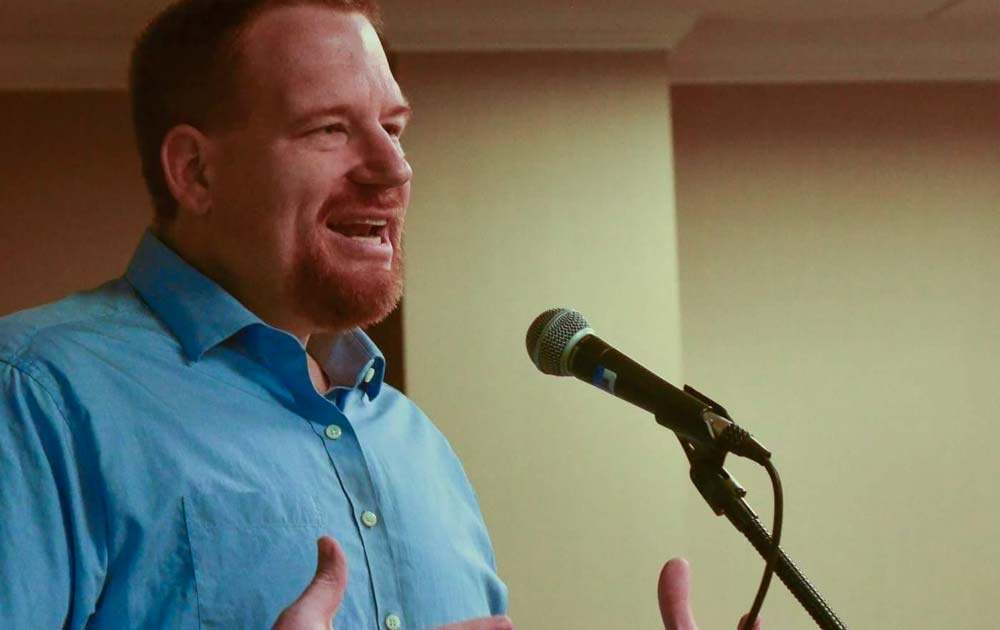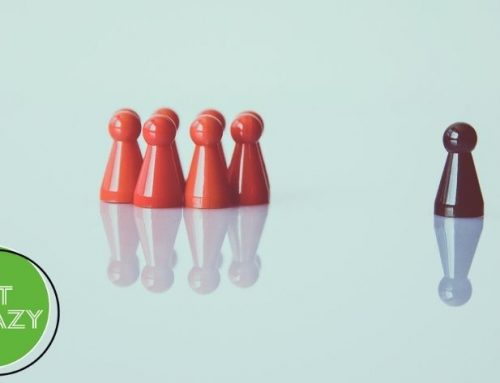Over the past year, I learned to never start a podcast with a schizophrenic. Honestly, it could be to never start a podcast with a New Yorker or a millennial, but since I operate in the mental health space, I’m going to pin this on my co-host’s mental illness. Which, of course, she’d correctly point out is exactly how stigma works.
I learned that grandchildren, even the loophole variety, are time consuming and expensive. I figured out that, when you’re a traveling speaker, becoming TSA certified saves a lot of time at the airport. In addition, I learned that publishing a book is something that the government should consider as an alternative form of torture to replace waterboarding.
In the 12 months since I turned 41, I completed a contract to deliver the same speech 26 times to 18,000 employees over six days, was on the front page of the Columbus Dispatch newspaper, and (perhaps most impressively) my wife and I went to Chicago to see the award-winning Broadway musical, Hamilton.
How Does Bipolar Disorder Factor In?
As you just read, bipolar disorder didn’t stop me from achieving great things on both personal and professional levels. I’m incredibly proud of the success of The Psych Central Show podcast, and despite my jokes that my co-host from A Bipolar, a Schizophrenic, and a Podcast is a handful, that show is growing at a record pace. Honestly, all my projects are doing extremely well, and my career continues to advance in a positive direction.
So, naturally, I’m underwhelmed. I feel like a fraud. I just sit back and wait for the other shoe to drop. No matter how much I achieve, it’s never enough. It’s like ‘stinking thinking’ on steroids mixed with cocaine. I’m just not capable of accepting any success.
I’m not an idiot. Intellectually, I know I’m successful, but emotionally, I feel like a failure. It’s just how my brain is wired and, while I can overpower those feelings with logic and coping skills, I still have to work at it. It’s not natural. I can’t just rely on how I feel. I’m constantly convincing myself that I’m not a garbage person.
It does get easier with age. I’m almost 42, and I’m better at managing bipolar disorder than ever before. As I stated above, I know I’ve had a lot of success. I’m aware that most anyone would be envious of my achievements – bipolar or not.
My life, however, has never worked that way. I recognize I’m doing well, and I know the people around me are proud of what I’ve done with my life. Sometimes, in rare moments of clarity, I’m proud of myself, too.
All I can do is keep trying and keep moving forward. For all I know, maybe 43 is the age a person living with bipolar needs to be to fully accept their positive qualities.
Hopefully, I’ll let you know around this time next year.








